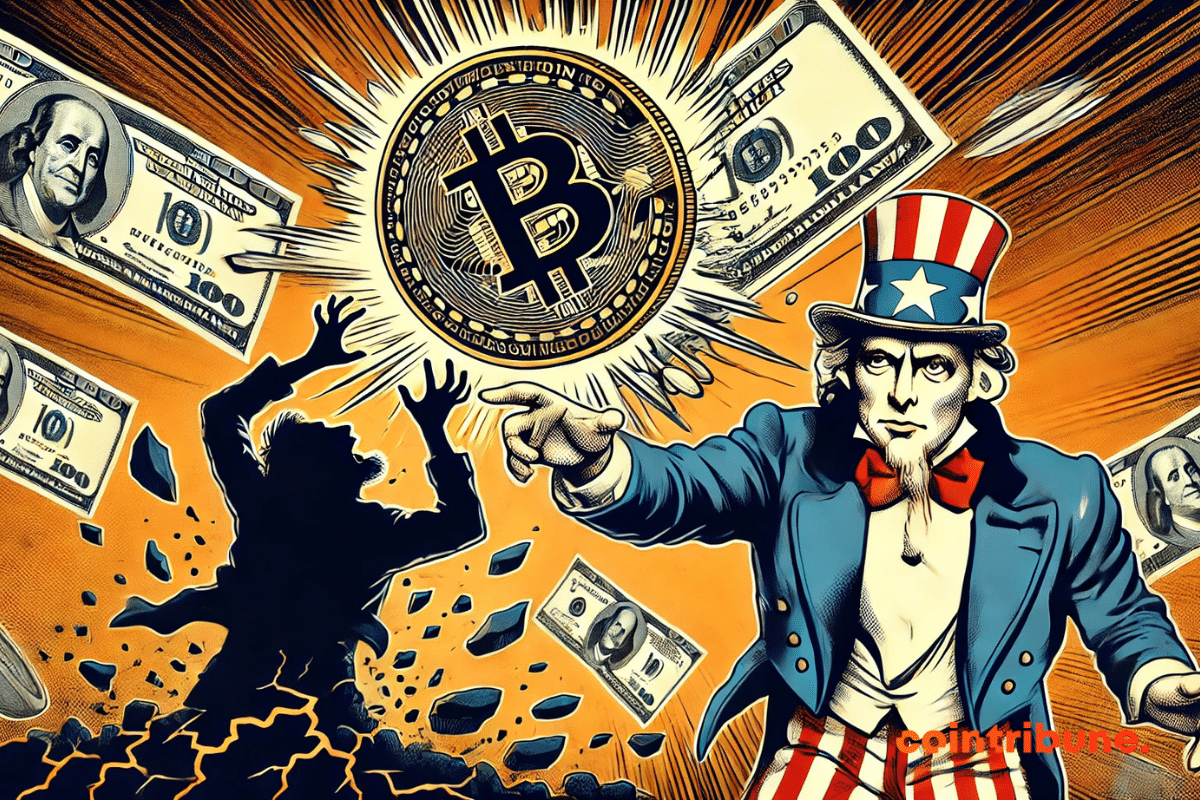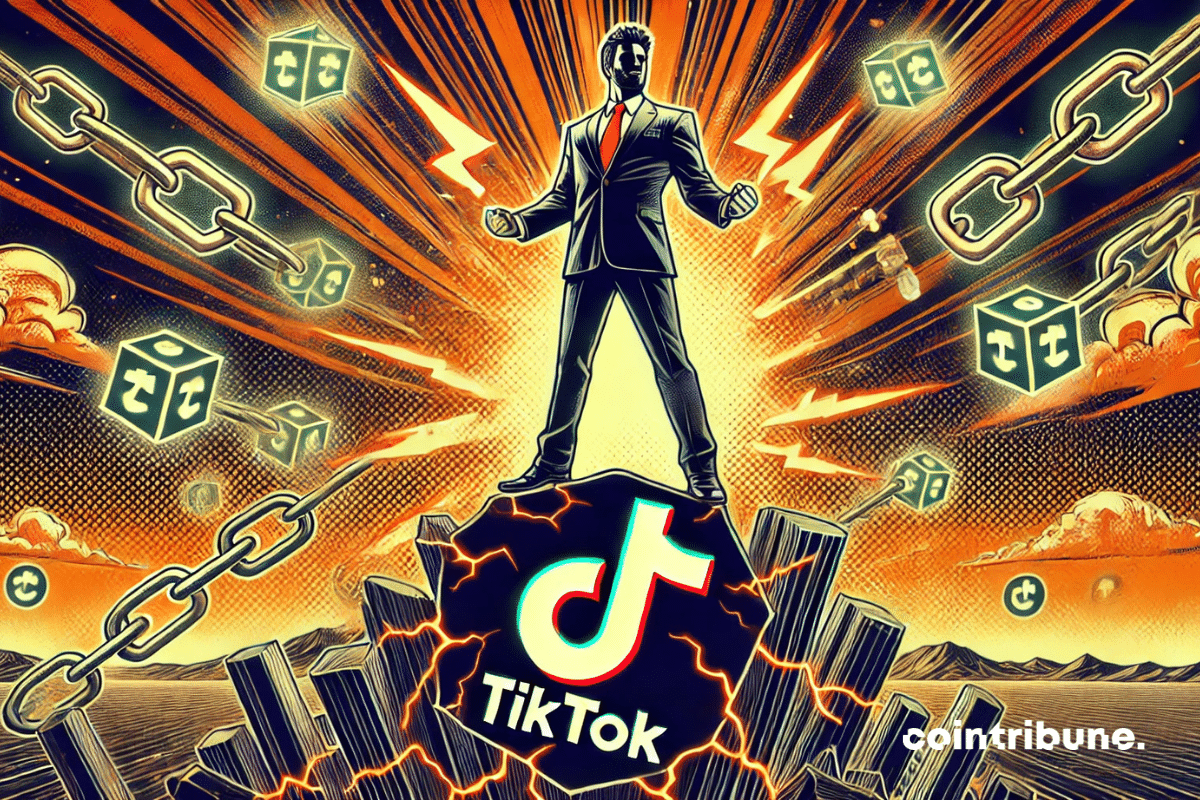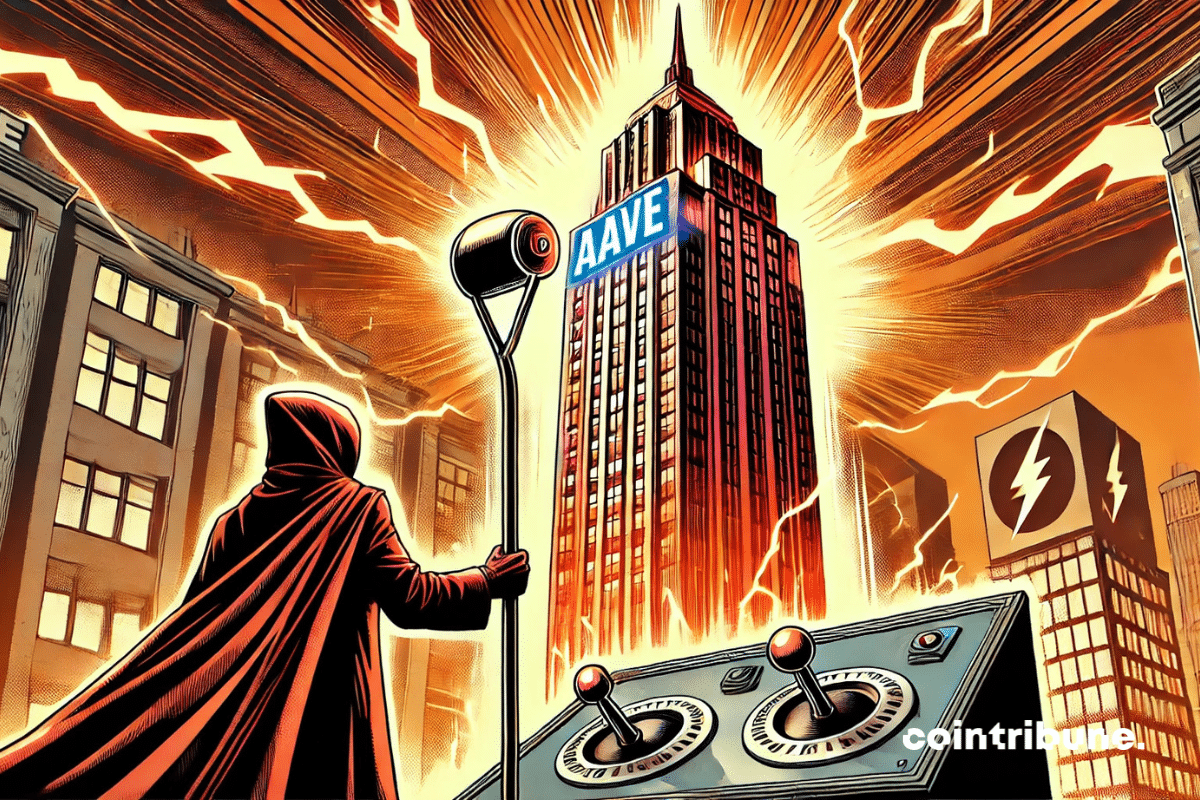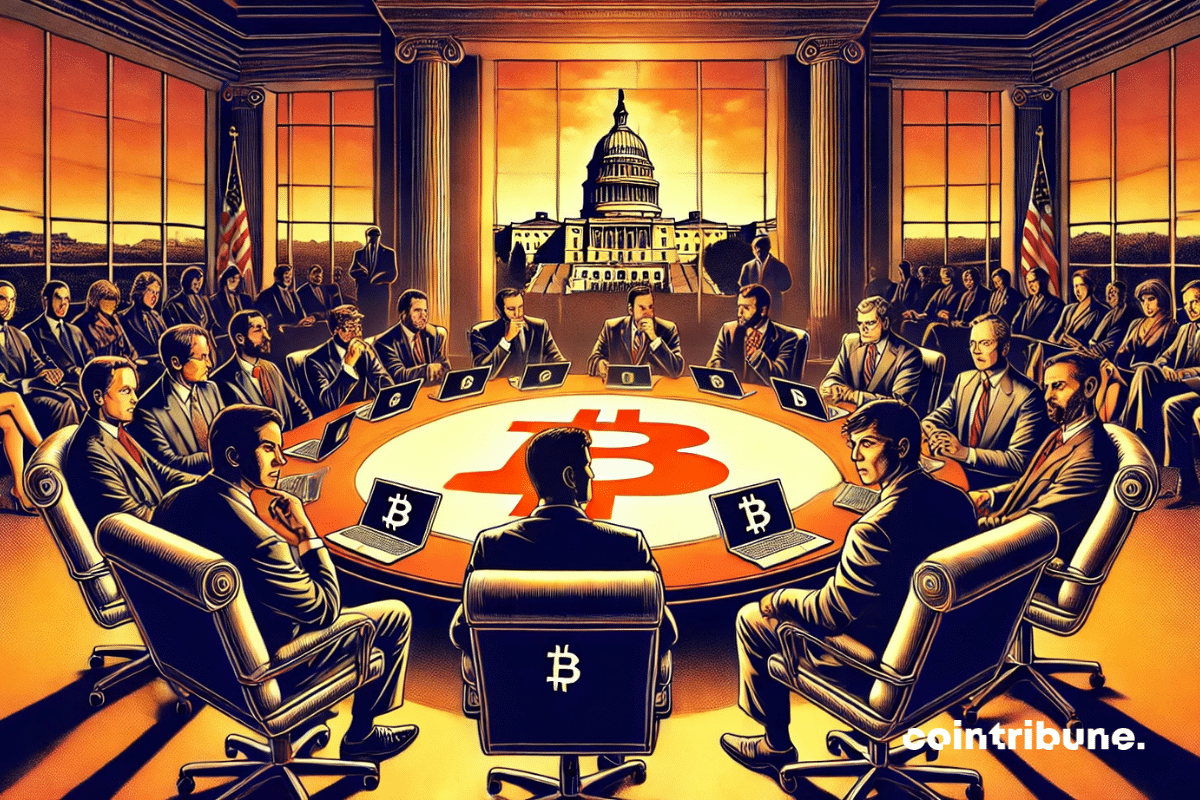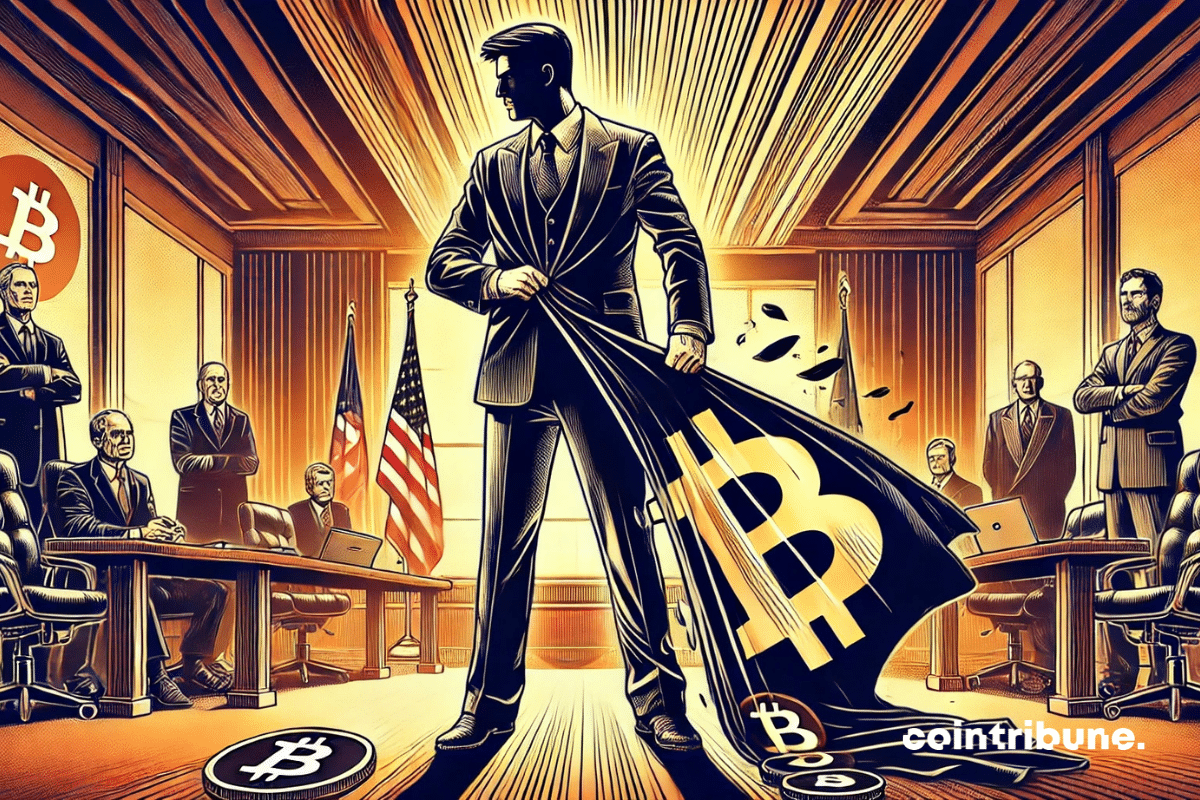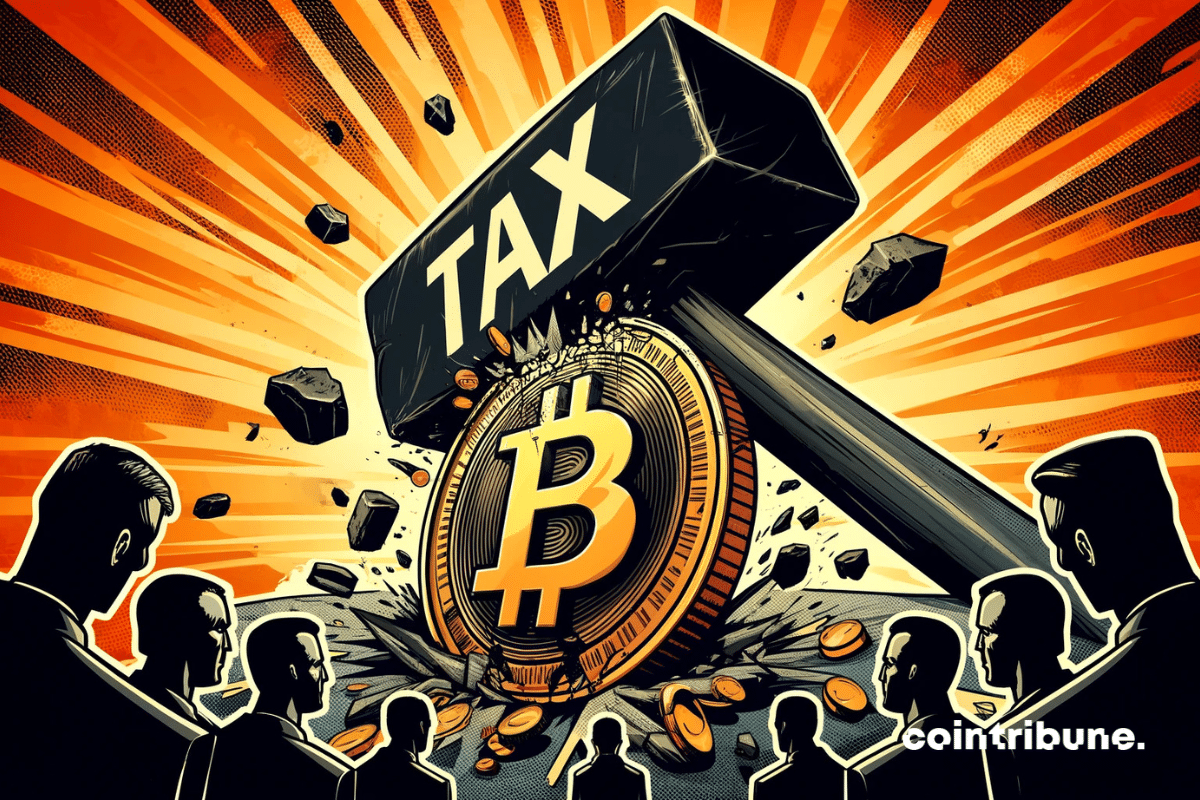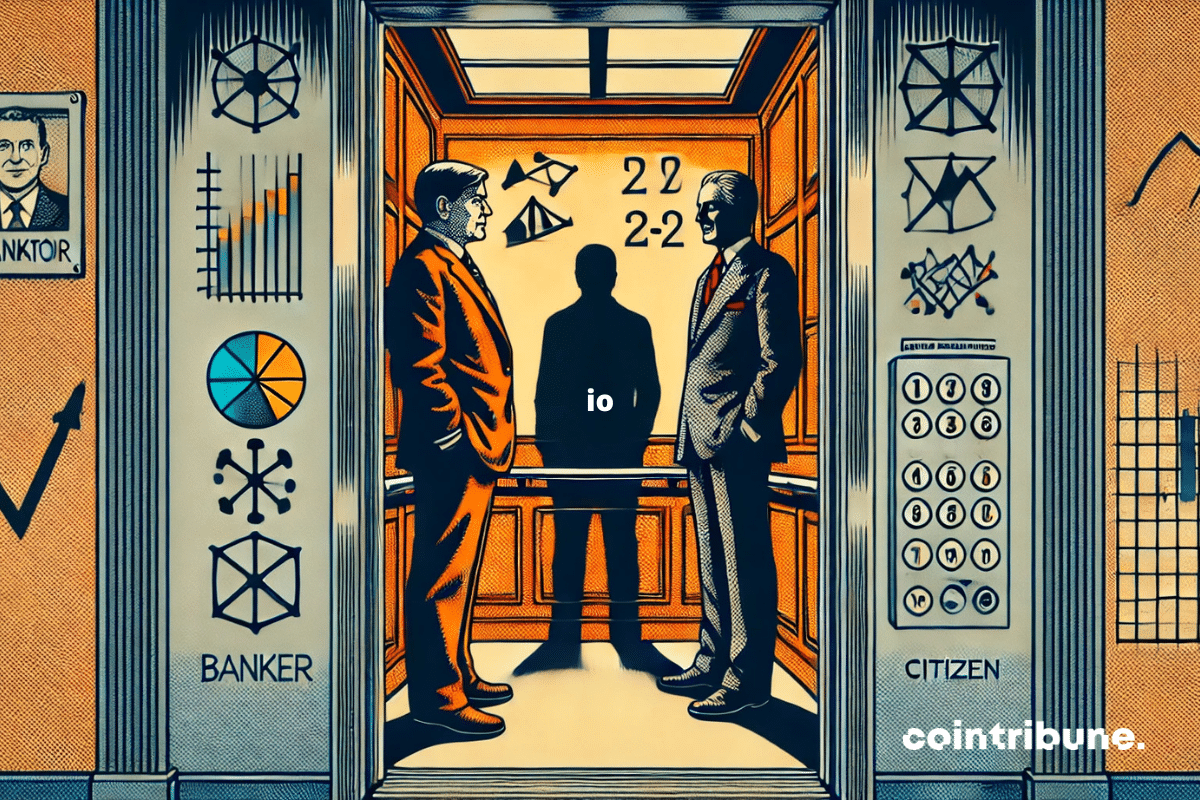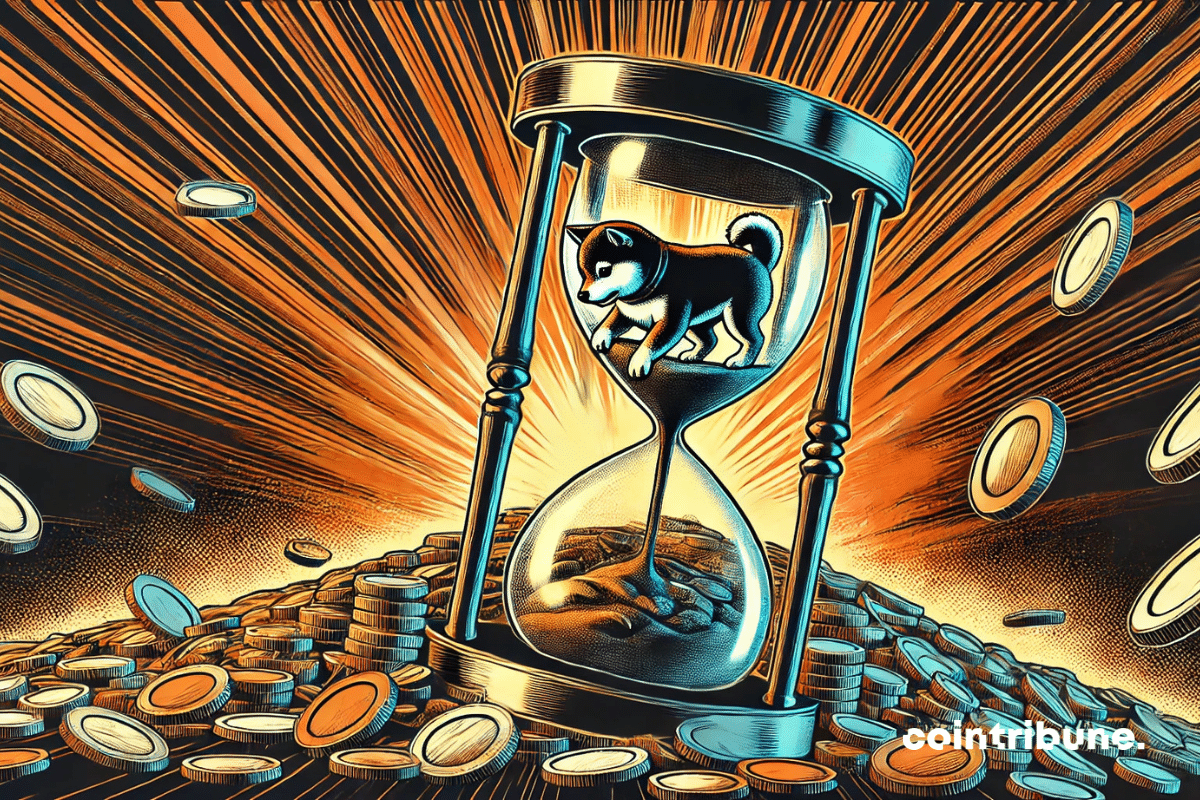The United States has taken the bull by the horns both economically and geopolitically. Many things are going to change and, in the end, bitcoin will find its way.
Trading Exchange RSS
At the heart of a debate as lively as it is surprising, the crypto universe is under the spotlight. The digital revolution and financial freedom clash with the imperatives of national security. This article boldly and clearly explores the issues related to crypto-friendly regulations and the potential excesses of an exacerbated surveillance state.
Ripple, one of the major players in the crypto sector, is once again under the spotlight. While the firm is regularly criticized for its management of the XRP supply, its CTO, David Schwartz, made remarks that are sure to fuel the debate. According to him, Ripple has every right to act in its own interest through the sale of XRP tokens, a claim that raises eyebrows within the community. This statement comes as new elements strengthen the questions surrounding the distribution of XRP. A dormant wallet containing over $7 billion in XRP has been identified, and some massive transfers have been spotted in the markets. Between legitimate financial strategy and market manipulation, the question of the impact of Ripple's sales on the XRP price is more urgent than ever.
In a context of increasing uncertainty in the crypto market, Solana experienced a capital hemorrhage in February 2025. Investors, burnt by scandals related to memecoins and the recent record hack of Bybit, are massively turning to digital assets deemed safer.
The economic confrontation between the United States and China is taking on a new dimension. Indeed, far from being limited to traditional exchanges, this trade war is now affecting the crypto market. Thus, between Donald Trump's announcement regarding the creation of a national strategic reserve of cryptocurrencies and the Chinese response to American economic sanctions, investors are witnessing market movements of rare intensity. The question now arises: is this instability temporary or should we expect a lasting impact?
Farewell obligations, farewell caution! Ricardo Salinas is casting aside traditional finance and wrapping himself in digital gold. 70% of his empire now rests on bitcoin.
Runbot, an innovative platform aiming to democratize automated crypto trading, is set to make its debut on the blockchain scene with a highly anticipated Initial DEX Offering (IDO) fundraising event this week. With the Token Generation Event scheduled for March 10, 2025, at 1:00 PM UTC, this announcement marks a key milestone for the project, which will be supported by several renowned launchpads.
The financial landscape of Bitcoin is undergoing a silent transformation. Blockstream, a giant in blockchain infrastructure, has just unveiled an initiative that could rewrite the rules of institutional credit. With three funds totaling several billion dollars, the company is opening an unprecedented breach: transforming Bitcoin into liquid leverage without requiring its sale. A bold move that places BTC holders at the center of a parallel financial system, where digital gold finally becomes a productive asset.
Alexis Ohanian, co-founder of Reddit, has confirmed his intention to participate in the acquisition of TikTok's U.S. operations to transform it into a blockchain-based platform. This initiative comes in the context of the Chinese application facing a potential ban in the United States under the Trump administration.
As the crypto market goes through a turbulent period, an unexpected asset is drawing all the attention. In an environment marked by widespread losses, Pi Network has just dethroned Hedera (HBAR) in market capitalization, rising to 11th place in the crypto rankings. This turnaround raises questions, both about the drivers of this ascent and the sustainability of the phenomenon. Amid the collapse of giants like Bitcoin, Ethereum, and Solana, how is Pi Coin managing to show gains?
On March 5, 2025, the highly anticipated Ethereum upgrade, named "Pectra", reached a crucial milestone with its successful deployment on the Sepolia test network. This advancement brings the Ethereum community closer to the integration of Pectra on the main network, marking a major evolution since the last update in 2024.
In an unprecedented financial showdown, El Salvador is going all-in on the global chessboard. Despite warnings from the IMF and a $1.4 billion conditional loan, Nayib Bukele persists: the country continues to buy more and more bitcoins. A risky bet, but a bet that is embraced.
Like a rising tide, Aave is reshaping its economy: buybacks, redistribution, protection... The fragile balance of decentralized finance wavers under this bold overhaul.
On March 7th, the White House will host a historic summit bringing together the biggest names in the crypto industry. This event, orchestrated by David Sacks, could mark a decisive turning point for the future of cryptocurrencies in the United States.
On March 6, 2025, Solana validators will vote on two major proposals aimed at modifying the network's economy and the reward system for stakers. These proposals, known as Solana Improvement Documents (SIMDs), are generating intense debate within the crypto community, particularly due to their impact on validator revenues, which are set to decrease dramatically.
The euphoria of the last few weeks has abruptly transformed into a debacle for crypto investors. In just 24 hours, over a billion dollars worth of positions were liquidated, taking with them the hopes of a prolonged market rebound. At the heart of this shock is a new wave of economic uncertainties, amplified by the United States' decision to impose 25% tariffs on Canada and Mexico. This announcement triggered a sudden drop in traditional markets, as well as a collapse of Bitcoin and major cryptocurrencies.
Oil markets have been caught off guard. While traders expected a delay in the increase of oil production by OPEC+, the cartel ultimately confirmed that it would return 2.2 million barrels per day to the market starting in April. This decision immediately triggered a brutal price reaction: Brent crude fell to $70.60, its lowest level in five months. This strategic choice, which comes after several successive delays, profoundly alters the balance of supply and demand in an already uncertain economic context.
The American stock market has just experienced a financial earthquake. In just a few hours, 3.4 trillion dollars evaporated, erasing the post-election gains in one fell swoop. A disastrous scenario that plunges Wall Street into an unprecedented stupor. And in the crosshairs? Donald Trump, whose new tariffs have ignited the fuse of a crisis with global repercussions.
The largest hack in the history of crypto is experiencing alarming developments. In just 10 days, hackers have managed to launder all of the 1.4 billion dollars stolen from the Bybit platform. Despite this swift execution, blockchain security experts estimate that a portion of the funds could still be recovered.
The economic clash between the Global South and the United States is taking a new turn, with Brazil emerging as a key player in this monetary battle. By opposing the supremacy of the US dollar, the Latin American country is redefining global financial balances and questioning the traditional architecture of international trade. This decision is part of a process of dedollarization, which is gaining momentum within the BRICS and could deeply modify international economic circuits.
Donald Trump's announcement on March 2 to include XRP in a U.S. strategic reserve alongside Solana and Cardano propelled the altcoin by +34% in 24 hours. A fleeting flash of glory: by the next day, the price retraced 50%, while on-chain data revealed a massive exit of institutional investors. Is crypto going through a classic pump and dump scenario amplified by politics, or does this pullback hide a discreet accumulation before a rebound?
After falling below $90,000, Bitcoin faced selling pressure, resulting in a nearly 14% drop. Find Elyfe's analysis to decipher the technical outlook for BTC.
On March 3, 2025, the International Monetary Fund (IMF) approved an extended facility of 1.4 billion dollars for El Salvador, aimed at supporting the country's economic reform program. This decision follows negotiations during which El Salvador agreed to modify its bitcoin policy to address the IMF's concerns. However, the IMF prohibits the accumulation of bitcoin and many other measures.
The Securities and Exchange Commission (SEC) has recently intensified its efforts to clarify the regulation of crypto assets. On March 3, 2025, the SEC announced that its Crypto Task Force would hold a series of roundtables entitled "Spring Sprint Toward Crypto Clarity" to discuss key issues related to the regulation of cryptocurrencies. The first session, scheduled for March 21, will focus on "How Did We Get Here and How to Get Out – Defining the Status of Security."
DeFi protocols had promised a brighter future. The result? 500 million ETH evaporated, stunned investors, and a crypto market that wobbles like a tightrope walker without a net.
Michael Saylor, long-time Bitcoin maximalist, has surprised the crypto world by adopting a favorable stance towards the inclusion of XRP and Cardano in the proposed U.S. national reserve by President Trump. In an interview yesterday with CNBC, the co-founder of Strategy stated that this diversification would be beneficial for both Bitcoin and the entire American crypto ecosystem.
As the Trump administration tightens customs controls, cryptocurrencies tremble. Between fleeting euphoria and brutal economic reality, the market reveals its vulnerability to geopolitical shocks. A staggering drop raises the question: is crypto a true safe haven or merely a mirror of global turmoil?
The figure has startled the markets: inflation in the eurozone was set at 2.4% in February, according to Eurostat. A slight decrease, indeed, but enough to reignite the debate on the European Central Bank's (ECB) next moves. Between cautious optimism and geopolitical clouds, the euro wavers on a tightrope. Behind these percentages lie contrasting realities: declining energy, resilient services, and a Germany that holds firm. An analysis of a somewhat muted economic landscape.
The wandering dog of crypto seeks refuge, torn between a heavenly ascent and an abyssal fall, as the market oracles whisper uncertain prophecies.
Crypto markets are often shaken by political announcements, but rarely with such intensity. Donald Trump, the President of the United States, unveiled an unprecedented project: the creation of a national strategic crypto reserve. Indeed, in an environment where the regulation of these assets in the United States remains a hot topic, this announcement triggered a spectacular surge in the market, with Bitcoin briefly surpassing $95,000. However, behind this frenzy, major uncertainties remain. The project still needs to pass through Congress, and some experts are questioning its real feasibility and lasting impact. Between hope and caution, the crypto community remains suspended over the evolution of this matter.

